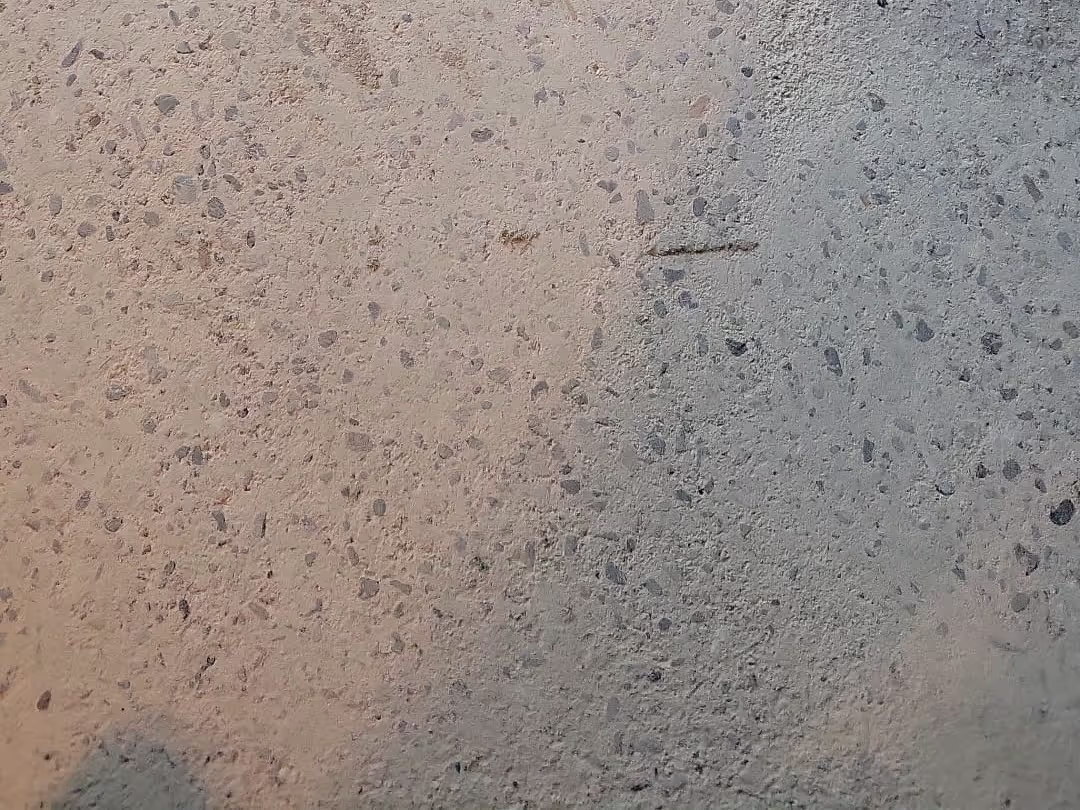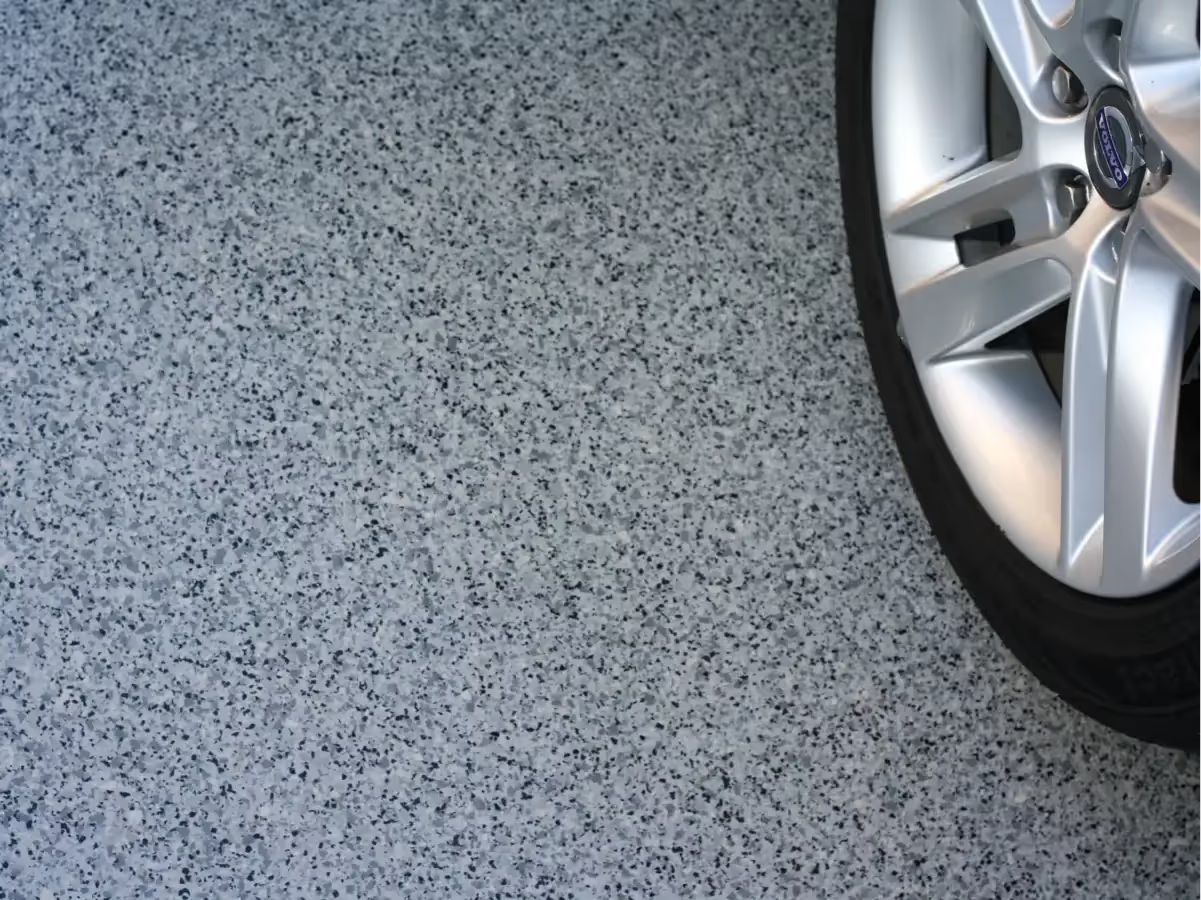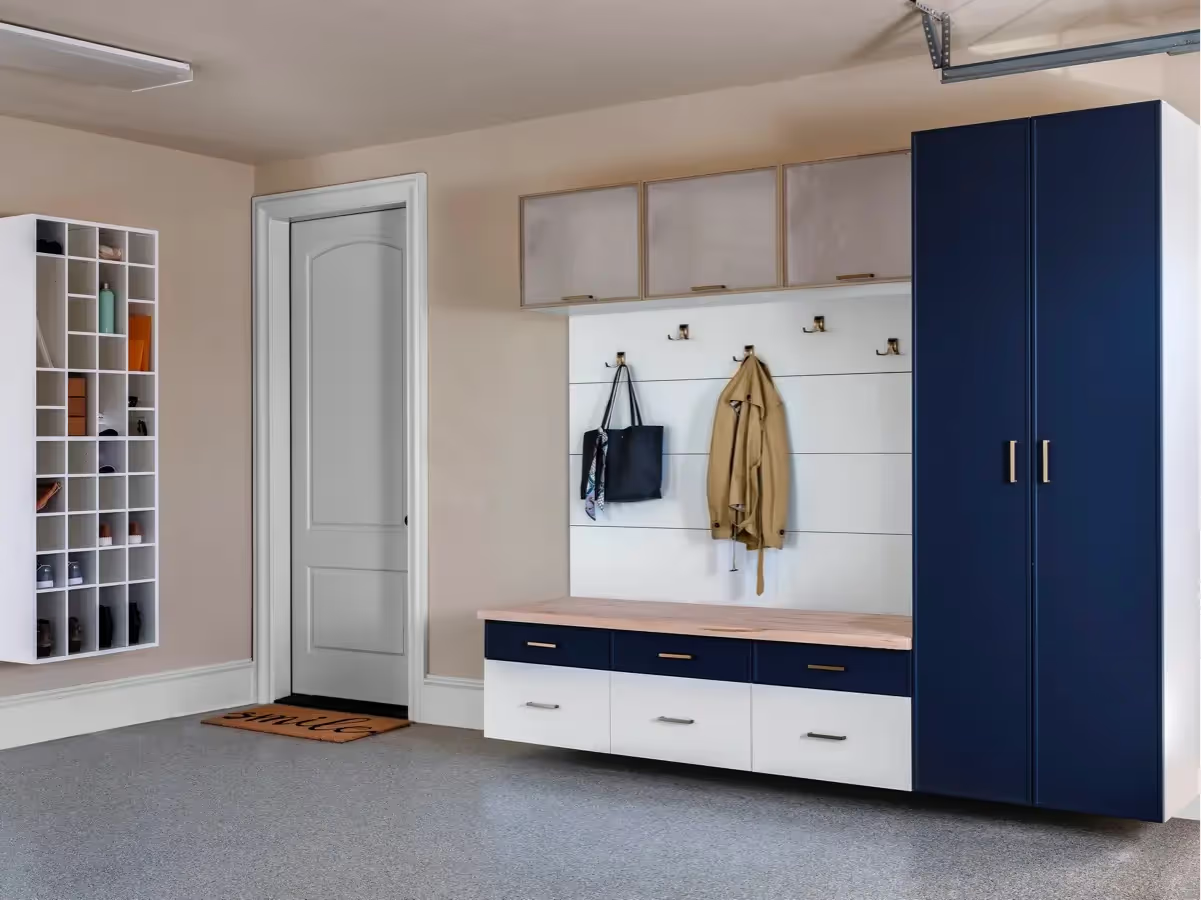The Unyielding Truth About Soft Concrete and Polyaspartic Floors: Why Primer is Non-Negotiable
Transform your garage with a stunning polyaspartic floor, but beware of soft concrete! Discover why proper priming is non-negotiable for a durable, long-lasting finish and how Clever Quarters ensures your investment endures.

For homeowners dreaming of a garage floor that's both stunning and incredibly durable, polyaspartic coatings offer a premium solution. However, a hidden challenge—soft concrete—can quickly turn this dream into a costly problem if not addressed correctly. This guide explains why priming soft concrete isn't just recommended; it's an absolute necessity for a long-lasting, high-performance polyaspartic floor.
The Problem with Soft Concrete
"Soft concrete" refers to a concrete surface with low structural integrity, often due to an improper mix (too much water or too little cement), poor curing, or carbonation. It's characterized by a weak, friable (crumbly) surface, high porosity, and low abrasion resistance.
Applying a polyaspartic coating directly onto soft concrete is a recipe for failure. The coating can't achieve a strong bond because the concrete surface itself is unstable. This leads to issues like:
- Poor Adhesion: The coating may stick to loose concrete particles that then detach.
- Excessive Coating Absorption: Porous concrete soaks up too much of the expensive topcoat.
- Outgassing and Bubbling: Trapped air and moisture escape, causing defects in the curing coating.
- Delamination and Peeling: The coating lifts away from the surface, often taking a layer of concrete with it.
Essentially, even the best polyaspartic coating will fail if the foundation is weak.
Polyaspartic Coatings: Durable and Desirable
Polyaspartic coatings are a top choice for concrete floors due to their exceptional durability, rapid cure times (allowing for quick return to service), UV stability (they don't yellow like epoxy), chemical resistance, and aesthetic appeal. They can transform a garage into a beautiful, resilient space.
However, these benefits are only realized if the coating is applied to a sound, properly prepared substrate. The fast cure time of polyaspartics, while an advantage, means they may not adequately penetrate and consolidate a weak, porous surface on their own, making a dedicated primer even more critical on soft concrete.

Why Primer is the Hero for Soft Concrete
A high-quality primer is the indispensable first step when applying polyaspartic coatings to soft concrete. It’s not just another layer; it’s a solution that:
- Consolidates and Strengthens: Penetrating primers soak into the weak surface, binding loose particles and hardening the top layer of the concrete. This creates a stable base for the polyaspartic coating.
- Enhances Adhesion: Primers create a superior bond between the now-stabilized concrete and the topcoat.
- Seals Porosity: This prevents excessive absorption of the polyaspartic coating, ensuring a uniform finish and reducing outgassing issues like bubbles or pinholes.
- Binds Dust: It locks down fine concrete dust that can interfere with adhesion.
- Addresses Moisture (if applicable): Certain primers also act as moisture vapor barriers, crucial because polyaspartics can be sensitive to moisture from the substrate.
For soft concrete, penetrating epoxy primers are often the preferred choice due to their ability to deeply consolidate the surface. Consolidating primers specifically designed for dusty, friable surfaces are also effective.
The Right Process for a Lasting Floor
Achieving a durable polyaspartic floor on soft concrete involves a meticulous, professional approach:
- Comprehensive Assessment: Thoroughly inspect the concrete, testing for hardness, moisture, and contamination.
- Thorough Cleaning & Decontamination: Remove all dirt, oil, grease, and previous coatings.
- Repair Imperfections: Fill cracks, spalls, and holes with compatible repair materials.
- Mechanical Surface Profiling: Diamond grinding is essential. It removes the weak top layer of concrete and creates a textured profile (typically a Concrete Surface Profile, or CSP, of 2-3 for thin-film polyaspartics) for the primer to grip. Grinding soft concrete requires specialized diamond tooling.
- Expert Primer Application: Apply the selected primer evenly, ensuring complete saturation and allowing it to cure fully according to manufacturer specifications. Multiple coats may be needed for very porous concrete.
- Flawless Polyaspartic Coating Application: Apply the polyaspartic base coat within the primer’s recoat window, followed by any decorative flakes and the clear topcoat(s), adhering strictly to mixing instructions and cure times.
The High Cost of Cutting Corners
Skipping the primer on soft concrete to save time or money is a false economy. It inevitably leads to premature floor failure:
- Peeling and Delamination: The most common failure, requiring complete removal.
- Blistering and Bubbling: Unsightly defects that compromise the coating.
- Rapid Wear and Tear: The floor degrades much faster than its potential lifespan.
- Wasted Investment: The initial cost is lost, and you'll face the expense of removal, re-preparation (including the initially skipped priming), and re-coating.
The cost of a proper primer application is minimal compared to the expense and hassle of a failed floor.
Trust the Experts for Enduring Results
Applying polyaspartic coatings over soft concrete is a technical task best left to experienced professionals like Clever Quarters. They possess the expertise to accurately diagnose concrete issues, select and apply the correct primer, and execute the multi-step preparation and application process flawlessly.
Investing in professional installation ensures your polyaspartic floor is built on a solid foundation, delivering the beauty, durability, and longevity you expect. For a stunning and enduring garage floor, especially over challenging concrete, don't compromise on proper preparation and priming.
Frequently Asked Questions
I'm considering doing my garage floor on my own. Why should I choose your company instead?
Here's why many homeowners trust Clever Quarters for their garage flooring:
- Expertise: Our seasoned team ensures a perfect, long-lasting finish.
- Premium Materials: We utilize top-tier products not typically available for DIY projects.
- Efficiency: We're trained to get the job done swiftly, reducing any inconvenience.
- Surface Preparation: Our equipment prepares the floor for optimal coating adhesion.
- Assured Warranty: We stand by our work, offering a 15 years warranty for peace of mind.
- Durability: With our professional touch, your floor will not only look fantastic but will also stand the test of time.
Why do you test the concrete hardness and how do you treat soft concrete differently than hard concrete?
Treating soft garage concrete floors requires a specialized approach compared to regular concrete, especially when it comes to floor preparation.
Before any work begins, it's crucial to assess the softness of the concrete using a concrete hardness tester. Soft concrete often has a powdery surface and can be easily scratched.
In situations where we are dealing with soft concrete floor, we need to apply a special primer layer specifically designed for soft or porous concrete to enhance the bond between the concrete and the subsequent coating.
Soft concrete can sometimes retain more moisture than harder concrete. It's essential to check the moisture levels before applying any coatings. If moisture levels are too high, specific moisture barrier products might be needed.
Can you install polyaspartic flooring over a garage floor with an in-floor heating system?
Yes, polyaspartic flooring can be installed over a garage floor with an in-floor heating system. Polyaspartic coatings are known for their ability to withstand temperature fluctuations, making them compatible with heated floors.
What's the difference between epoxy and polyaspartic garage flooring?
When comparing epoxy and polyaspartic garage flooring, several key differences emerge. Epoxy flooring, takes longer to cure. It's also more sensitive to temperature variations, which means it might not set properly under extreme conditions. Additionally epoxy can yellow over time, especially when exposed to direct sunlight like in garages.
On the other hand, polyaspartic flooring offers rapid curing, often setting within just a few hours. It boasts the ability to be applied in a wider range of temperatures and has superior hot tire resistance. Polyaspartic is UV stable, meaning it won't yellow in sunlight, and it's more resistant to chemicals and abrasions than epoxy.
Can your polyaspartic garage flooring be applied over a suspended slab?
Yes, our polyaspartic garage flooring can be applied over a suspended slab. However, it's important to note that while polyaspartic coatings have excellent elongation properties, they are not inherently waterproof. If your garage floor doesn't have built-in waterproofing system installed, we recommend the application of a waterproofing membrane prior to the polyaspartic flooring. Specifically, we use Sikalastic 390 as a waterproofing membrane. This is applied after the concrete grinding and surface repair, ensuring the floor is both durable and protected from potential moisture issues before the polyaspartic coating is applied.
About The Author

Askari, founder of Clever Quarters, specializes in transforming homes through smart organization and design. His passion lies in leading a talented team committed to creating functional, aesthetically pleasing spaces. Under his guidance, Clever Quarters has become synonymous with enhancing everyday living through thoughtful organization
Ready to Transform Your Space?
An organized home is closer than you think. It all starts with a friendly conversation about the possibilities for your space. Contact us today to schedule your complimentary, no-obligation design consultation with one of our expert designers.
Related Posts

The Complete Guide to Polyaspartic Garage Flooring: Solving Vancouver's Moisture Challenge
Imagine investing thousands of dollars in a beautiful garage transformation only to watch your new floor bubble and peel within months. This nightmare scenario affects many Vancouver homeowners due to our region's unique moisture challenges. At Clever Quarters, we understand that successful polyaspartic garage flooring requires more than just applying a coating—it demands proper moisture management to ensure lasting results. Unlike DIY epoxy kits that often fail within a year, professional polyaspartic systems offer exceptional durability and stain resistance, but only when moisture issues are properly addressed first. This comprehensive guide reveals why moisture management is essential for your garage flooring investment and how professional assessment can save you thousands in potential failures.

Garage Floor Coating for Suspended Slabs in Vancouver: Why Waterproofing Matters
Suspended garage slabs can leak and damage rooms below. Learn why a Sikalastic 390 waterproofing membrane, followed by a polyaspartic coating, is the gold-standard system for Vancouver homes—and how Clever Quarters installs it right the first time.

From Garage to Haven: Elevate Your Home with a Functional Mudroom by Clever Quarters
Discover how Clever Quarters can transform your garage into a functional, stylish mudroom. Learn about custom storage solutions, durable construction, and our client-centric design approach to enhance your home's efficiency and harmony.



